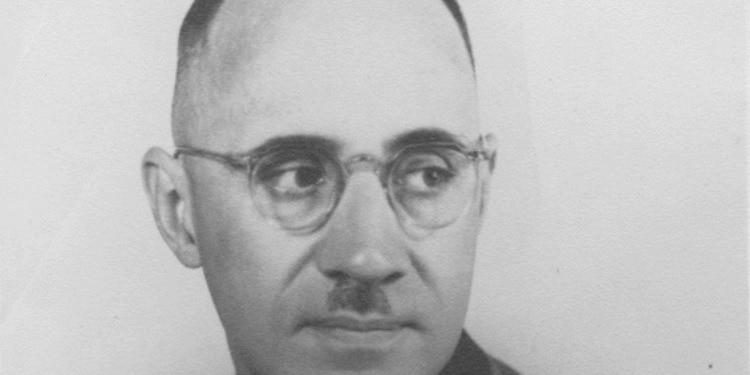‘I Saw Unbelievable Things That I Could Not Support’
The Fellowship | April 12, 2017

Karl Plagge
Life: July 10, 1897 – June 19, 1957
Why you should know him: A German who was a member of the Nazi party, Plagge used his position of power in order to save Jews – more than 1,200 of them, initially – from death at the hands of his countrymen.
After their defeat in World War I – and the ensuing economic and national devastation that came with it – many German veterans were lured by Adolf Hitler’s promises to make Germany great again. Karl Plagge was one of these men who’d fought for his country and hoped for its renewal, joining the Nazis in 1931.
Soon, however, Plagge realized the racism and anti-Semitism that was behind Hitler’s every political move. And so Karl Plagge refused to support such evil theories. His local Nazi leadership accused Karl of being a “friend of Jews” and stripped him of his own leadership position.
When World War II broke out, however, Plagge – an engineer by education – was put in command of an engineering unit, responsible for maintaining and repairing the Nazi military’s vehicles. The unit Plagge commanded, HKP 562, was sent to Vilna during the Nazi invasion of Lithuania. There, Plagge witnessed the genocide being carried out against Vilna’s Jews, saying, “I saw unbelievable things that I could not support…it was then that I began to work against the Nazis.”
Plagge gave out work certificates to Jewish men, marking them as skilled workers (and essential to the Nazis) regardless of their experience. Each certificate saved the man, his wife, and two children from the Nazi sweeps in which any Jew without proper paperwork was captured and executed. Plagge was able to issue 250 of these certificates, thus saving the lives of more than 1,000 Jews.
He also helped the Jews he saved survive by providing extra food, including hot meals. He allowed his workers to smuggle food out of the workshop, which was illegal, and made sure they had warm clothing, medicine, and wood to heat their homes. When his workers or their families were arrested during Nazi sweeps, Plagge made sure to secure their freedom.
In 1943, the Vilna Ghetto – where the Jews of the city were held – was to be liquidated. Even the Jews with work permits were to be taken away and killed. Plagge formed a “slave labor camp” for his unit on the city’s outskirts, and on September 16 of that year, he transported over 1,000 Jews there. Less than a week later, the Nazis liquidated the ghetto, murdering the rest of the city’s Jews.
In the camp he’d had built, Plagge ordered his officers to treat the laborers “with respect.” Along with tolerable work conditions and the food provided them, the Jewish laborers in Plagge’s camp suffered little abuse. However, the Nazis still controlled these Jews’ fates.
In early 1944, while Plagge was on leave at home in Germany, the Nazi SS rounded up most of the camp’s 250 children and murdered them. That summer, the Nazis also planned to murder the remaining Jews as the Soviet Red Army approached Vilna.
Plagge, knowing that murderous Nazi officials were watching, warned his workers in code of their impending deaths. He gave a speech – under the watchful eyes of the SS – that secretly gave the Jews the date the Nazis planned to killed them: July 3, 1944.
Warned, more than half the camp’s prisoners were able to hide before the Nazi death squads arrived. 500 prisoners did appear at the Nazi roll call, and every one of them were shot. The 250 that remained in hiding survived.
During the Holocaust, 70,000 Jews were murdered in Vilna. Many thousands more were sent to extermination camps and lost their lives there. Karl Plagge was only able to save 250 of the 1,250 Jews he initially protected, but that survival rate of 20% is much higher than the only 3% of Lithuanian Jews who survived the Holocaust.
When Plagge, a Nazi, was tried after the war, his former prisoners advocated for him, and the court found in his favor. Like Oskar Schindler, however, Plagge wished he could have save more Jews, a lament that lasted for the rest of his life. Karl Plagge died in 1957, and in 2005 was named Righteous Among the Nations by Yad Vashem for the Jewish lives his actions did save.
